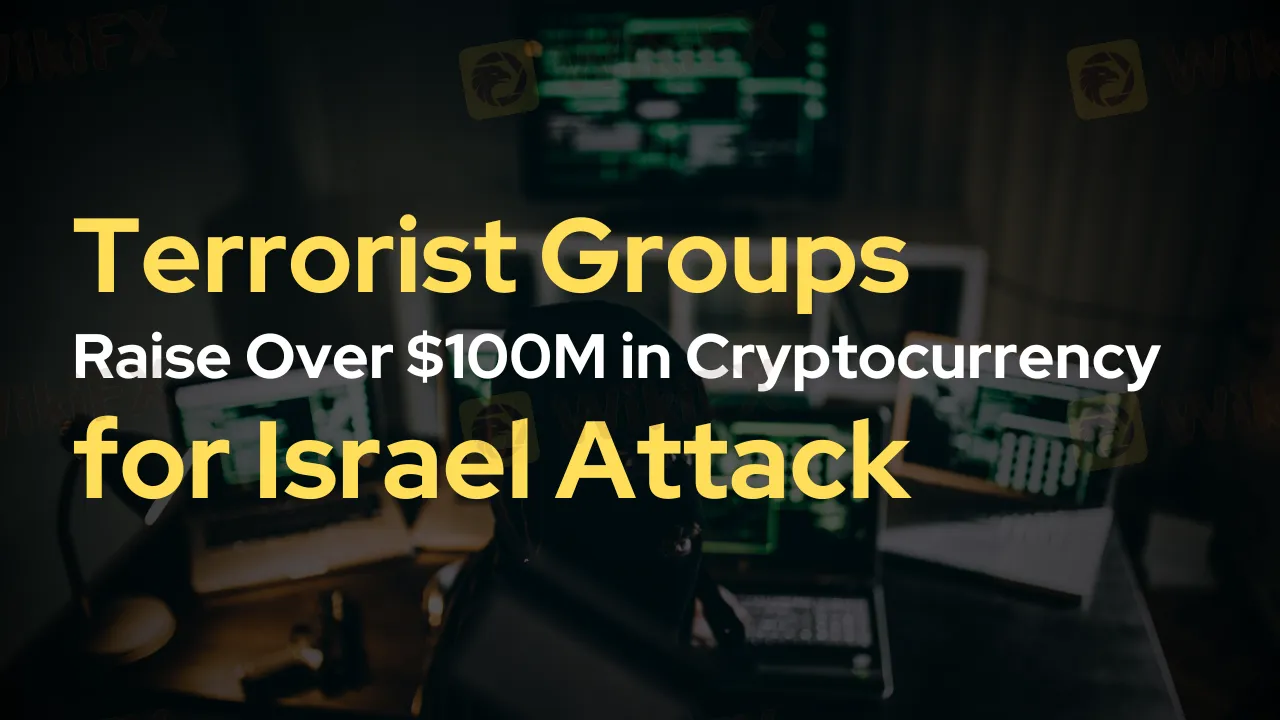简体中文
繁體中文
English
Pусский
日本語
ภาษาไทย
Tiếng Việt
Bahasa Indonesia
Español
हिन्दी
Filippiiniläinen
Français
Deutsch
Português
Türkçe
한국어
العربية
Terrorist Groups Raise Over $100M in Cryptocurrency for Israel Attack
Abstract:Wall Street Journal, it has been found that three pro-Palestine terrorist groups have successfully raised over $134 million through cryptocurrency to fund their operations.

In a recent revelation by the Wall Street Journal, it has been found that three pro-Palestine terrorist groups have successfully raised over $134 million through cryptocurrency to fund their operations. This startling discovery came after an in-depth review of Israeli court documents and thorough blockchain analyses.
Among the implicated organizations is Hamas, which has lately been in the limelight following its unexpected attacks on Israel over the past weekend. Although it is currently ambiguous whether the cryptocurrency funds received by Hamas were directly used for these attacks, it is confirmed that at least $41 million in cryptocurrency had been utilized for their operations at some juncture.
Adding to the list, the documents also unveiled that the Palestinian Islamic Jihad has received a staggering $93 million in cryptocurrency. Moreover, the Lebanese ally Hezbollah hasn't remained untouched by this trend. They have also been involved in the receipt of cryptocurrency, specifically in the form of Bitcoin, and have been actively trading on the Binance crypto exchange.

Surprisingly, these groups have been quite open about their fundraising efforts. They have consistently appealed for donations through the social media platform, Telegraph. Acknowledging the generosity of their supporters, they have also expressed gratitude for the massive cryptocurrency contributions.
But what makes this modus operandi even more alarming is the evolving tactics to remain undetected. As international banks started grasping the extent of these transactions, these groups ingeniously adopted payment processing methods that convert monetary contributions into crypto addresses. This strategy effectively camouflages the crypto wallets, allowing these organizations to effortlessly bypass the international banking system.
Addressing the issue, spokespersons from the Binance crypto exchange communicated to the Wall Street Journal about their proactive collaboration with both the US and Israeli governments. Their main objective is to mitigate and eventually eliminate any illicit activities associated with their crypto exchanges.
This revelation underscores the increasing complexity of tracking funds in the digital age, especially when it concerns international security. The harnessing of cryptocurrencies by extremist groups has ushered in a new challenge for governments and financial institutions, urging them to adapt and devise stronger measures against such covert operations.

Disclaimer:
The views in this article only represent the author's personal views, and do not constitute investment advice on this platform. This platform does not guarantee the accuracy, completeness and timeliness of the information in the article, and will not be liable for any loss caused by the use of or reliance on the information in the article.
Read more

Top Forex Trading Strategies Every Trader Must Implement
Successfully navigating the fluctuating forex market landscape requires more than having a high-risk appetite. It requires effective strategies that assure you gains even during the market fall. Let’s go through the strategies many traders implement to gain.

Vantage Markets Review 2025: Trusted Forex and CFD Trading Since 2009
Explore our 2025 Vantage Markets review! A trusted Sydney-based broker since 2009, offering forex, CFDs, low spreads, global regulation, and 24/7 support. Trade from $50!

Top Tips to Choose the Best Forex Broker in 2025
You need a solid forex broker to make the most of the currency fluctuation. The strategies they use to take you through the ups and downs of forex trading are beyond words. While the strategies may seem solid, the eventual gains matter more. That’s where you need to take notice of the forex brokers, how they approach, their fee structure, rating, etc. To help you evaluate forex brokers better, we have this guide for you. Read it to choose the right forex broker in 2025.

IronFX vs Exness Review 2025: Comprehensive Broker Comparison
Explore an in-depth comparison between IronFX and Exness. Compare licensing, features, regulation, trading platforms, and customer service for smarter trading decisions.
WikiFX Broker
Latest News
SkyLine Guide 2025 Malaysia: 100 Esteemed Judges Successfully Assembled
Vantage Markets Review 2025: Trusted Forex and CFD Trading Since 2009
TradingPRO: A Closer Look at Its Licences
The world could be facing another ‘China shock,’ but it comes with a silver-lining
A Guide to Intraday Forex Trading You Can't Miss Out
CONSOB Blocks Access to 13 Unauthorized Investment Websites
Why STARTRADER Is Popular Among Traders?
New SEBI Regulations on Intraday Trading
Everything You need to know about Barath Trade
OctaFX Flagged by Malaysian Authorities
Currency Calculator


